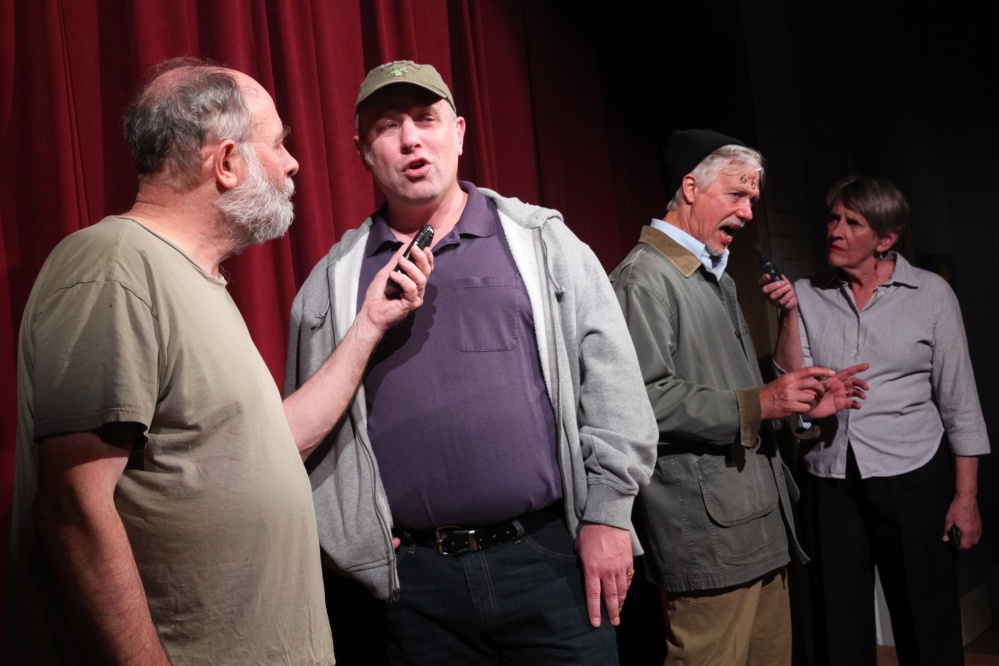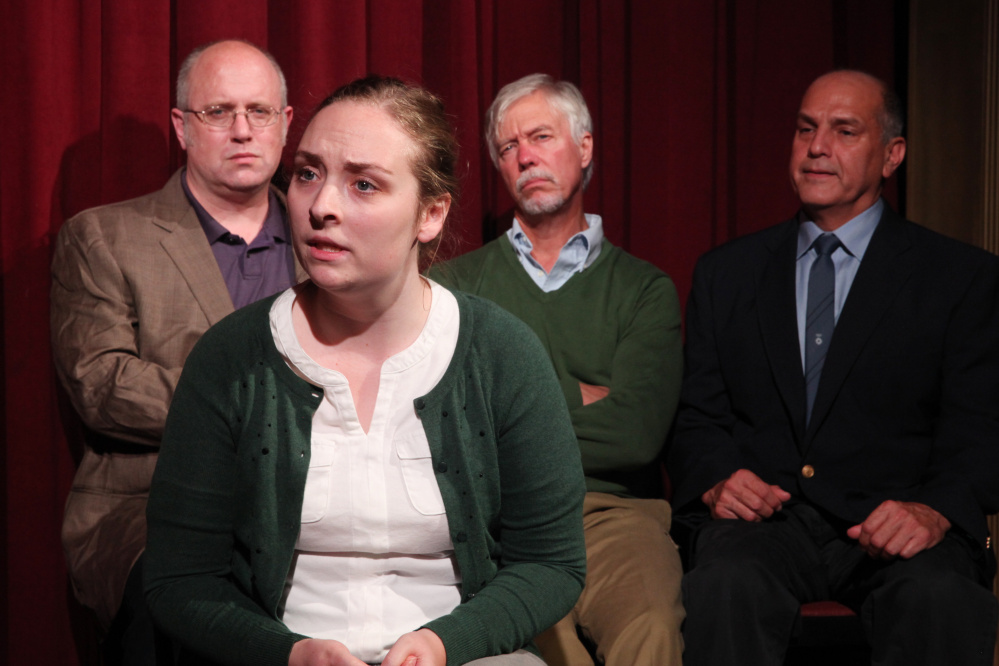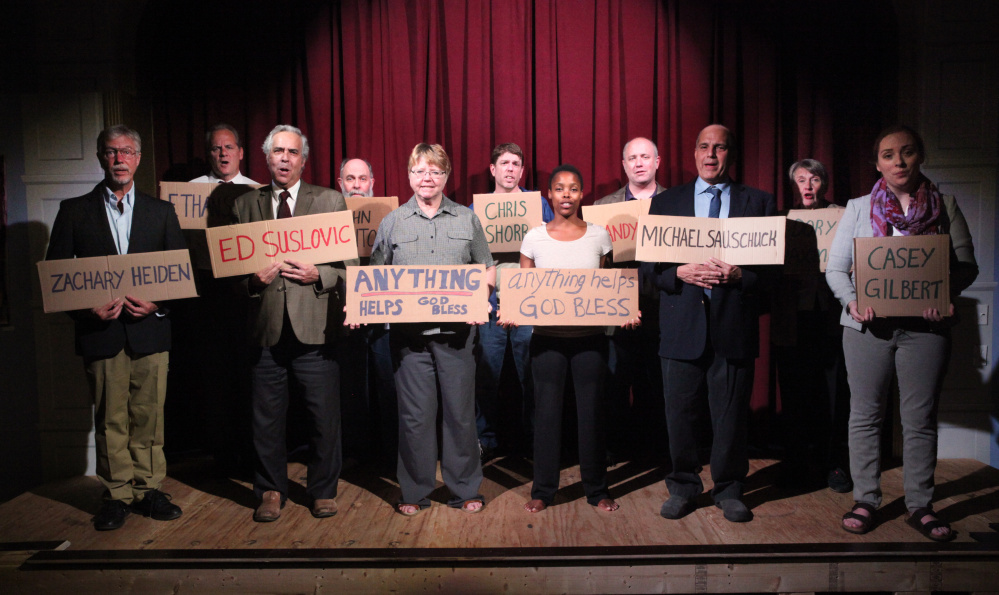Giving help to those in need is far from a new concept. But questions of how to best do it in a fast-growing city engendered a full-fledged political, legal and cultural battle in Portland just a few years ago.
Director Al D’Andrea and MK Wolfe of the Snowlion Repertory Company and the ensemble they selected have collaborated to produce “Anything Helps God Bless,” a piece of investigative theater that revisits the controversy surrounding an attempt by the city of Portland to ban median strip panhandling or “signing,” as it is often called in the piece.
The City Council did pass, citing issues of public safety, an ordinance restricting the practice in 2013. But it was ruled unconstitutional in court challenges in 2014 and 2015.
To gather material on all that, the intrepid Snowlion ensemble, with the support of a grant aimed at examining constitutional issues, fanned out to interview various participants and interested parties and otherwise gather information about the controversy.
During this unusual process, Harlan Baker, Cathy Counts, Tom Handel, Rene Goddess Johnson, Patricia Mew, Eric Norgaard, Bob Pettee, Mary Randall, Pat Scully, Nick P. Soloway and Eric Darrow Worthley also came to examine their own views. It is the moments when their descriptions of fact-gathering combine with personal reflections that this two-hour show steps fully into the realm of dramatic art.
But the facts are important and performers assume the roles of mayors, city councilors, police officials, homeless advocates, lawyers, judges, reporters and numerous signers in presenting this edited but nonetheless “100% true tale,” as the company asserts.
The performers switch hats, jackets, attitudes and manners of speaking as they assume different roles. Against a backdrop of photos from city intersections and with a median and traffic signs flanked by speaking pedestals and podiums, the scenes switch from street-level to rowdy council meetings to formal courtrooms and back again. Cardboard signs, associated with panhandling, are also wittily employed to identify characters and set up the action.
A few public figures are gently criticized as the general flow of the piece gravitates toward sympathy and understanding for those near the bottom rung of the economic ladder. Respect for those who help them is abundant. Bits of humor relieve the general intensity of the work.
Legal arguments, though important to understanding the stakes in a society where laws may weigh heaviest on the poor, tend to dry things up a bit and the overall status quo ante resolution is unfulfilling. But this show’s emphasis on increasing awareness of the sometimes “thin line” between “us” and “them” and its framing of the issue’s many sides raises a sign of hope.
Steve Feeney is a freelance writer who lives in Portland.
Send questions/comments to the editors.




